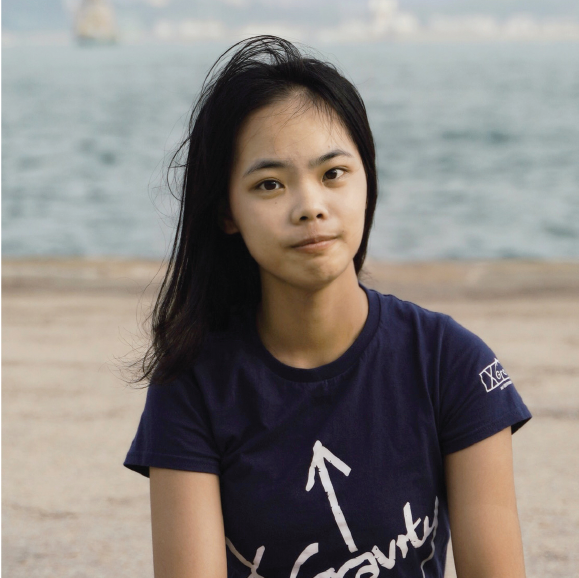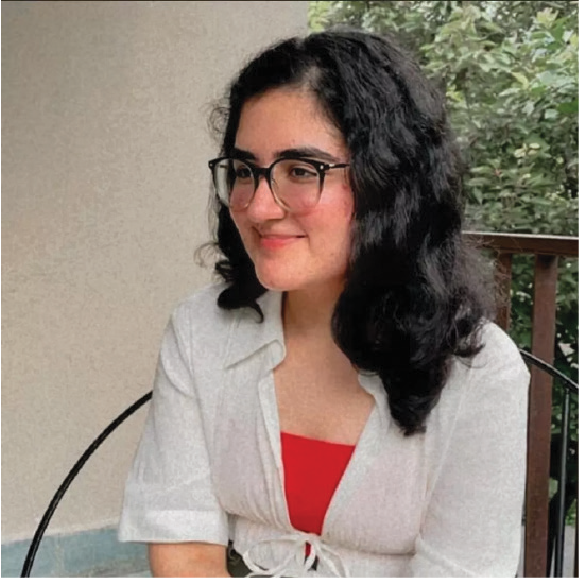teaching and learning
INSPIRING BEYOND
DISCIPLINES



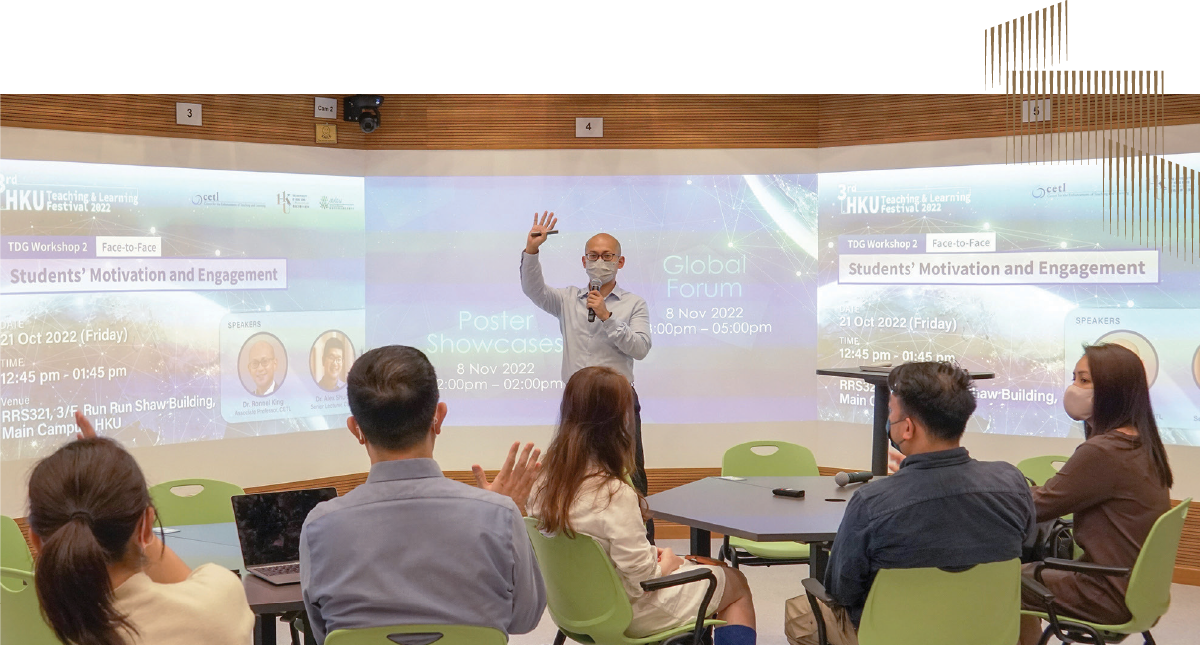
The 3rd HKU Teaching and Learning Festival 2022 celebrated the achievements of teaching innovation and development that positively impact student learning.
HKU’s teachers have been embracing new technologies to ensure students can continue to learn whatever the circumstances and to explore new ground, both in terms of how content is taught and the content itself. Simulations, virtual reality and 3D cameras are being used in disciplines as diverse as archaeology and nursing. To support teachers, the University runs a biannual Teaching and Learning Festival featuring workshops and sharing sessions and it has opened the new Learning Lab, a unique hybrid classroom that offers professional development for teachers and a model for bridging the divide between online and in-person students. We have also formalised our university teacher professional learning programme into the HKU Postgraduate Certificate in Academic Practice, a portable qualification for teachers who complete our general training programmes that will be launched in 2023.
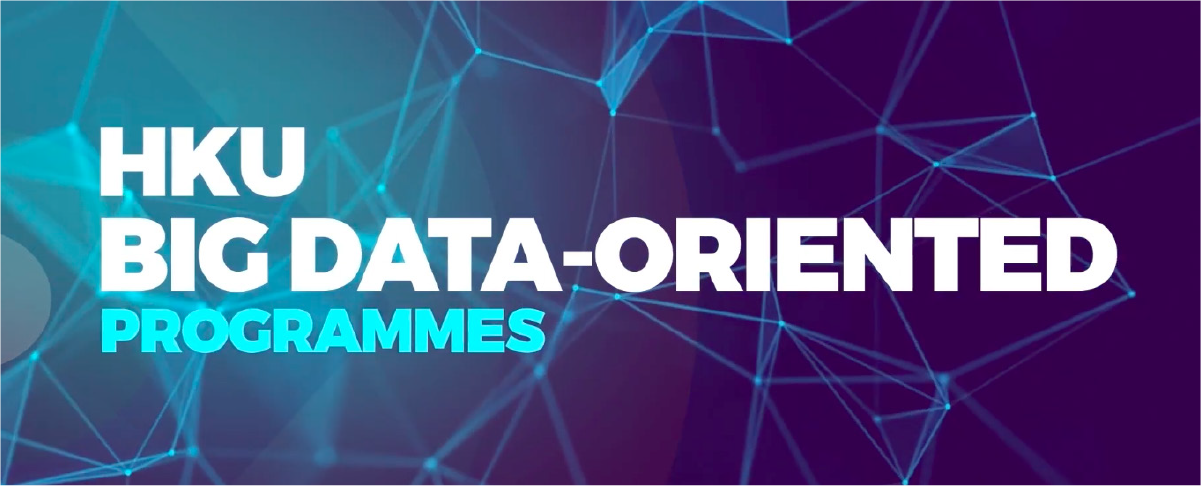
Digital capabilities have become more important than ever in society. To meet that demand, we launched several new programmes in 2022–23 that emphasise digital literacy and the ability to work with big data and artificial intelligence. These include the Bachelor of Engineering in Data Science and Engineering, Bachelor of Arts in Humanities and Digital Technologies, Bachelor of Science in Bioinformatics, Bachelor of Business Administration in Business Analytics, and Bachelor of Science in Marketing Analytics and Technology. In a similar vein, the double degree Bachelor of Science and Bachelor of Laws prepares students to deal with legal issues related to STEM. Another new programme, Bachelor of Psychology, addresses the growing demand for mental health professionals. Meanwhile, tech components have been applied to the student services provided by the Centre of Development and Resources for Students, which offers online counselling and psychological support to students with needs, as well as a CV-checker and AI-based mock job interviews that give students feedback on their performance.
Enterprising students have a growing array of opportunities to develop their ideas and get an early start in innovation and entrepreneurship. iDendron (see Technology Transfer and Knowledge Exchange chapter) has offered funding and entrepreneurial training to students for several years, while the Tam Wing Fan Innovation Wing, which opened in phases in late 2020 and late 2021, supports maker culture through a well-equipped space where students can collaborate, develop their ideas, and receive training from experts and peers. So far more than 2,300 students from all 10 faculties have come through the Innovation Wing.
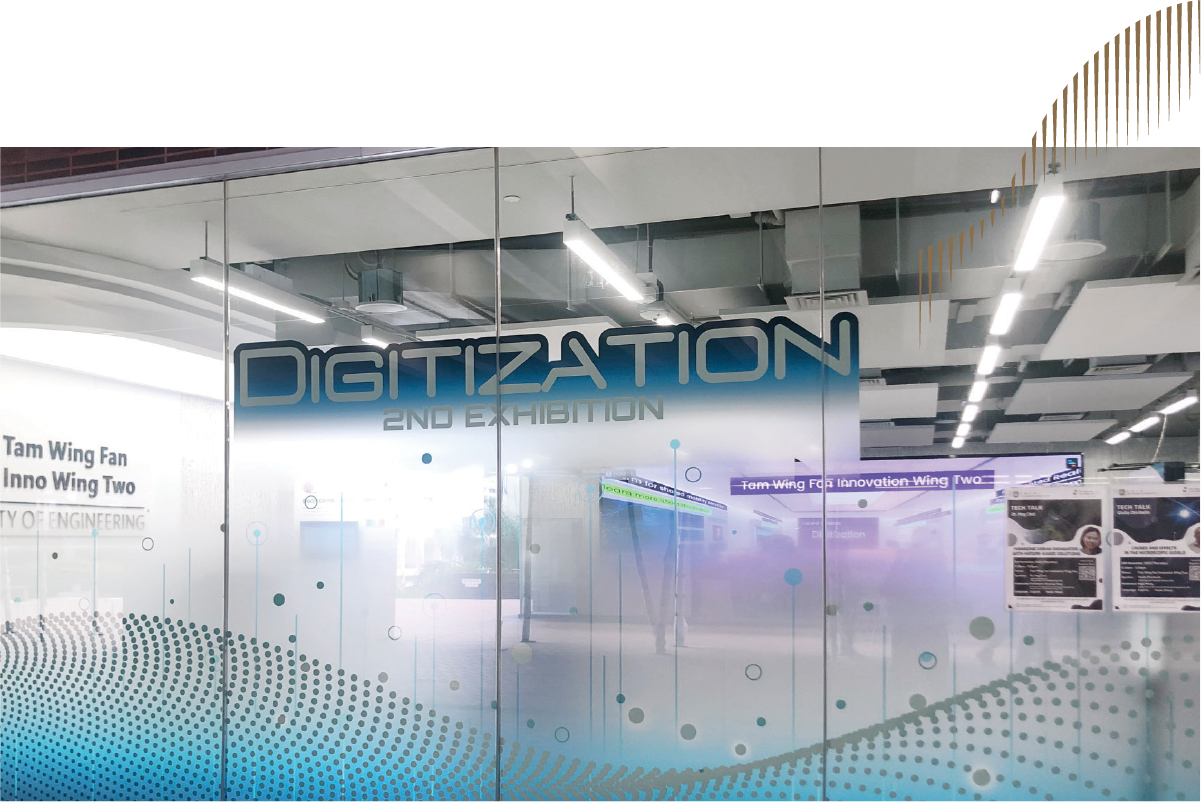
The Tam Wing Fan Innovation Wing Two was officially opened in December 2021. The Innovation Wing One and Two and the Innovation Academy together form an integrated hub for innovation, exploration, outreach and collaboration.
Our graduates’ ability to develop innovative solutions for societal challenges will depend on flexible, agile thinking. The University aims to advance this capability by systematically integrating undergraduate research into the curriculum for all students, which will deepen their knowledge and learning capabilities. Interdisciplinarity is also being advanced through the new Elite Capstone Programme that brings together students from at least three different faculties to develop innovative solutions to real-world problems. The Common Core, which celebrated its 10th anniversary in 2022, has been a pathbreaker in undergraduate research and interdisciplinarity and it will also support our coming Future Readiness programme to ensure HKU students have the skills and mindsets to be leaders in the future workforce.
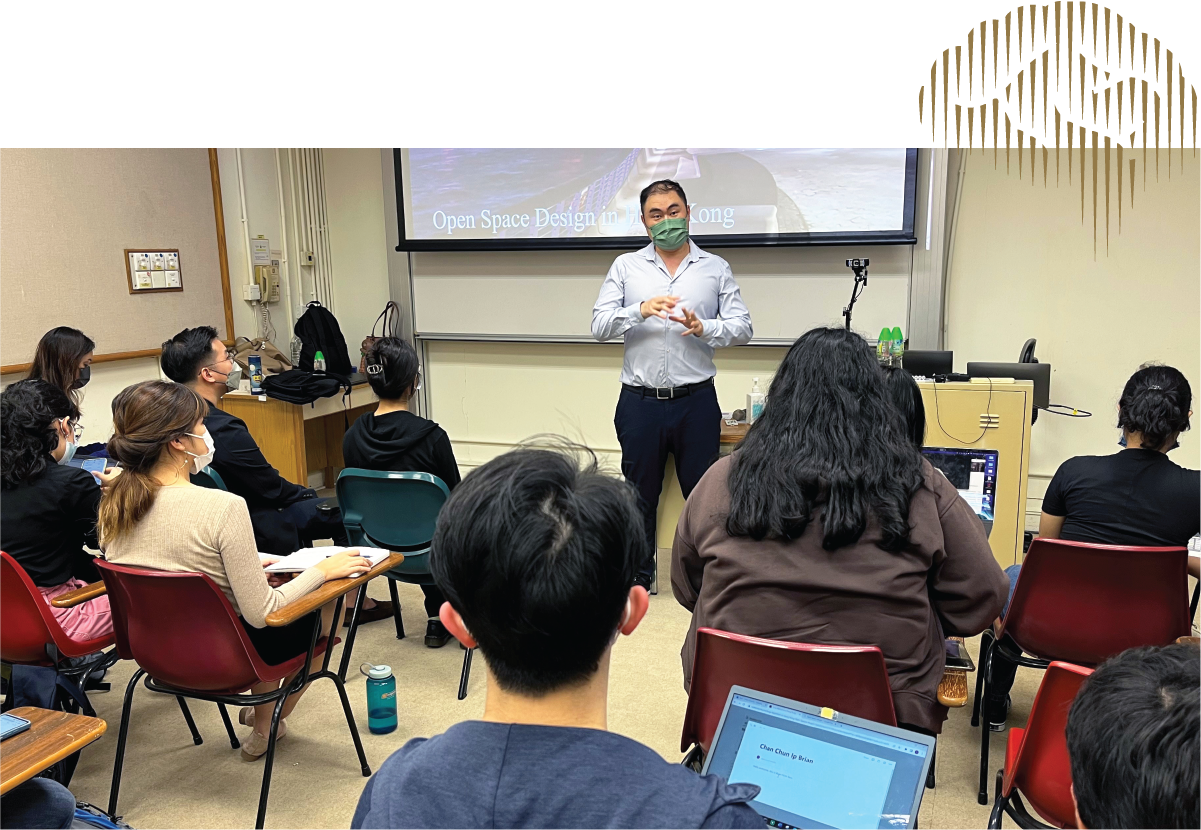
Students from across different faculties attending a workshop, jointly organised by the Common Core and Arup, for a transdisciplinary research project to study the design of open spaces across Hong Kong.
It is truly wonderful to have students back on campus at the start of the 2022–23 academic year, following the lifting of pandemic restrictions in Hong Kong. HKU prides itself as an attractive destination for top students from around the world. In 2022, 121 top scorers came to HKU from Hong Kong, the Mainland and overseas and our new students also had the highest average admission score in the HKDSE. The future outlook for HKU graduates looks very rosy, even given the backdrop of geopolitical events and pandemics. HKU and Hong Kong in general are set to see a big expansion in opportunities through our deepening engagement with the Greater Bay Area. We are committed to preparing our students to lead the way in capitalising on these opportunities and building new bridges to the region and the rest of the world.

The University has returned to face-to- face teaching for all programmes in the 2022–23 academic year.
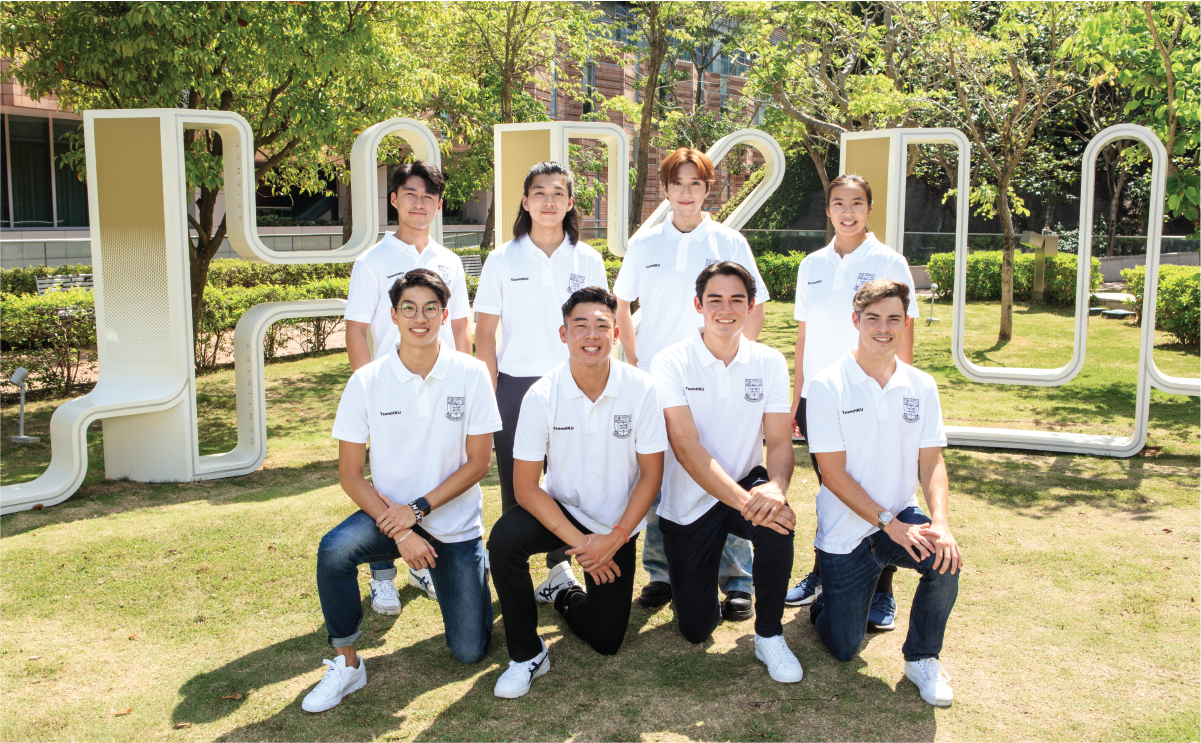
Sports talents join the HKU family via the Top Athletes Direct Admission Scheme.


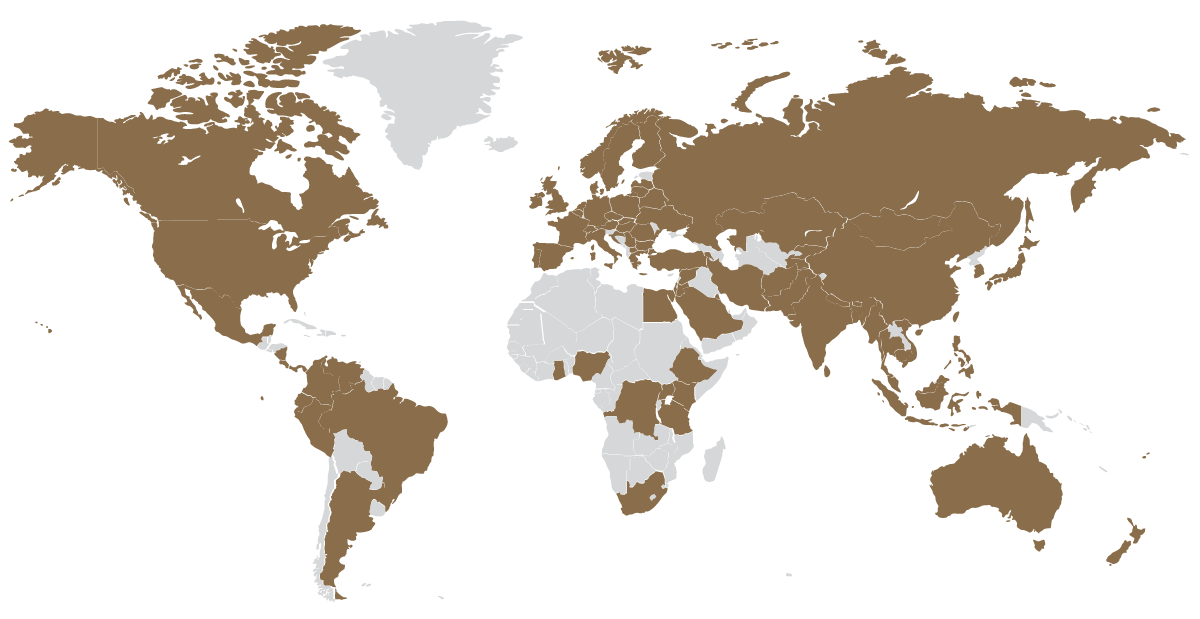
A team led by two Faculty of Education students won the 2022 Pitching Contest for Engineering Undergraduates and InnoHub members organised by the Faculty of Engineering’s Innovation Academy, underscoring the growing interdisciplinarity of tech innovation at HKU.
The crossover project, MotOral,is a mobile application targeting swallowing disorders among older adults. The app helps speech therapists provide prevention measures for at-risk patients, such as exercises to strengthen oral motor muscles, face-tracking technologies to monitor muscle movement, and visual feedback.
The project was led by Lesley Lee Hoi In and Rachel Yue Hang Chi, both Year 4 students in the Bachelor of Science in Speech-Language Pathology. Rachel was already a member of InnoHub – a platform where students from all 10 faculties can collaborate on new innovations – when the two friends decided to test their ideas in the Pitching Contest. They also sought input from friends in engineering, business and law to gain perspectives from outside speech-language pathology on how to improve their app, but the leadership – and pitching – were down to the efforts of Lesley and Rachel.
“This was our first-ever pitching contest and we were nervous and practised more than 30 times to ensure our pitch went smoothly. We were so excited and surprised to win the contest even though we were not engineering students,” they said. The pair received a HK$1,200 cash prize and also won the Best Presenters Award.
They are now eligible to apply for funding from the Tam Wing Fan Innovation Fund and Philomathia Foundation Innovation Fund to develop their project further. “We are continuously making modifications and seeking funding to improve MotOral’s functions. This kind of support is important for turning student ideas into a self-sustaining business,” they said.

MotOral is a mobile application that assists speech therapists in providing preventive measures of swallowing disorders for at-risk older adults.
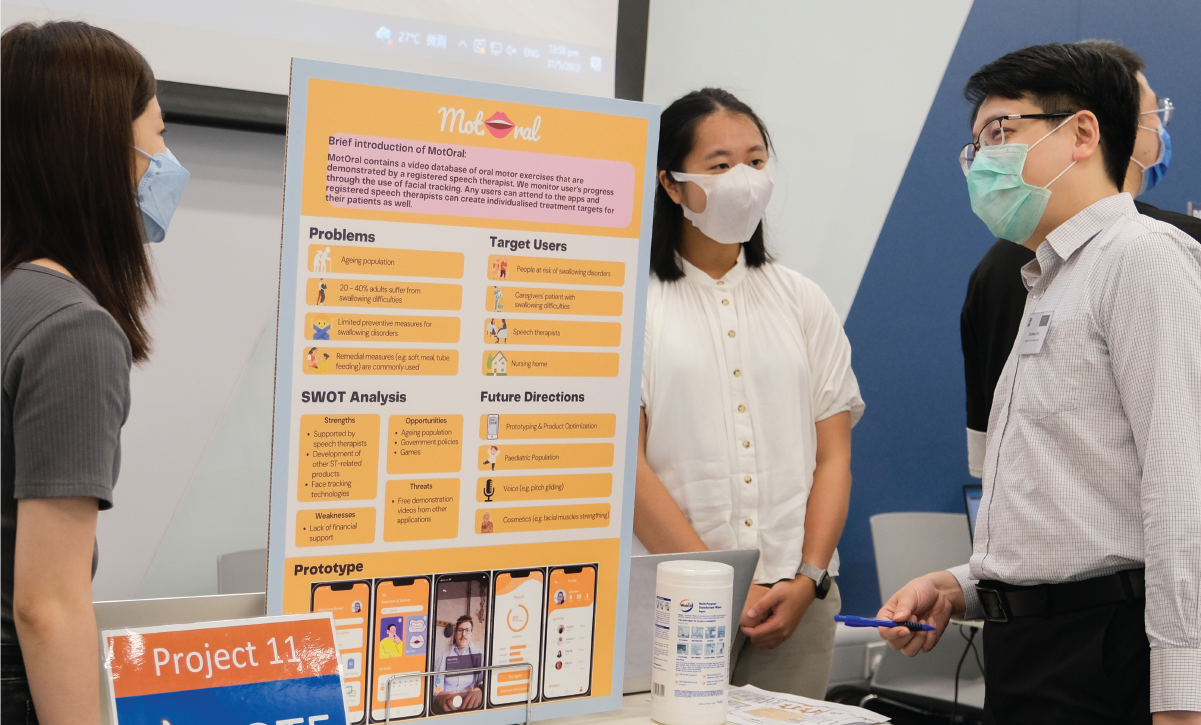
Lesley (left) and Rachel (centre) showcasing MotOral in the Engineering Inno Show.
The University is in the process of integrating research more systematically into the undergraduate curriculum. In the meantime, individual students and teachers are demonstrating the value of this goal.
Dr Gilad Feldman of the Department of Psychology requires all his students – not just star pupils – to produce research that contributes to academia. From 2018 to 2022, they conducted 80 replications and extensions of classic findings in social psychology and judgment and decision-making, which are important to uphold the credibility of the original findings. So far 28 have been published in academic journals. While the students have learned about the rigours of research, Dr Feldman has also gained insights. “My work with students has informed my understanding of open science. I encouraged them to challenge me to do better and they have motivated me to re-examine all that I’ve learned in my academic training,” he said.
Undergraduate research can also send students in pursuit of research careers. Lam Suet Ying graduated in 2022 with a Bachelor of Arts double major in linguistics and computer science and moved directly into a PhD programme at the University of Massachusetts Amherst. She earlier collaborated on several research studies with Dr Heeju Hwang in the Department of Linguistics, including a transdisciplinary study on pronoun production in Mandarin Chinese that was published in Cognitive Science this year with Suet Ying as the lead author. The study was funded by the Common Core Transdisciplinary Undergraduate Research Fund.
“I wanted to learn what doing research is like so I could decide whether I wanted to pursue further study in this field and I found myself really enjoying it. This drove me to apply for PhD programmes,” she said. Dr Hwang said Suet Ying had contributed to knowledge about general theories of referential communications across languages. “This kind of research can raise students’ awareness about linguistic and cultural diversity and help foster an inclusive environment,” she said.
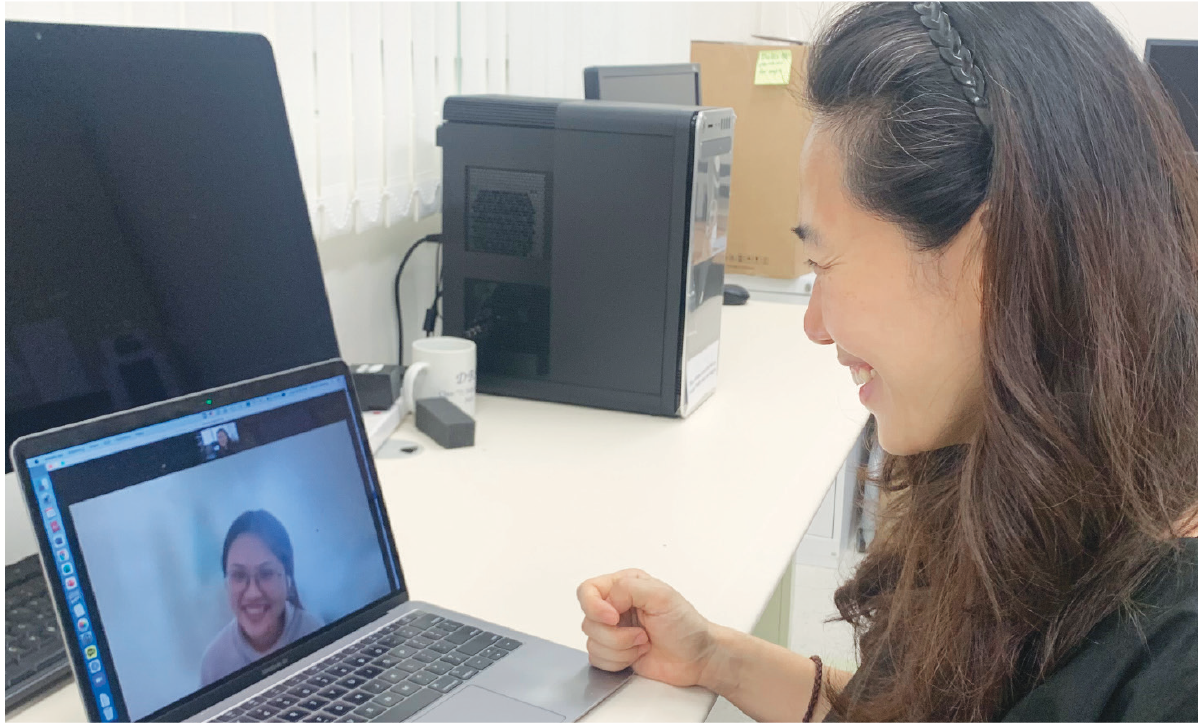
Dr Heeju Hwang and Bachelor of Arts student Lam Suet Ying (on screen) have meetings and perform research studies online due to the COVID-19 pandemic.
One of the biggest challenges teachers have faced during the pandemic is how to make hybrid learning work – those sessions when in-person and online students attend class at the same time. Professor Susan Bridges and her colleagues at the Centre for the Enhancement of Teaching and Learning have examined the problem from all angles to produce a model that is attracting global attention and is on display at the Learning Lab, a new professional development space where teachers can experiment with the future of learning.
“We were given a brief two years ago to predict what classes would look like when face-to-face learning resumed and to draw out the best lessons from arrangements during COVID-19. Hybrid was the hardest to crack but we have designed this space ourselves and patented the Hybrid Learning Mobile Desk Console in the HKSAR and Mainland China, and we believe it can achieve our learning goals. This is the most advanced hybrid teaching space on campus,” said Professor Bridges.
The console puts online learners at the centre of group discussions, using hexagonal tables with two back-to-back computer screens at their centre and a 360-degree camera. Online students can see all their in-person groupmates at the same time and vice versa, and both groups can look at the same computer screen at the same time. Their work can also be projected onto a giant digital canvas that wraps around the room, for feedback from teachers and classmates. Online students can also be projected onto the canvas to contribute to whole-class discussion.
The Learning Lab has been presented to educators in Hong Kong, Europe and Australia to much interest. “People have never seen this kind of space before. I believe the future of teaching and learning is hybrid,” Professor Bridges said – particularly in connecting students and teachers in different campuses and countries.
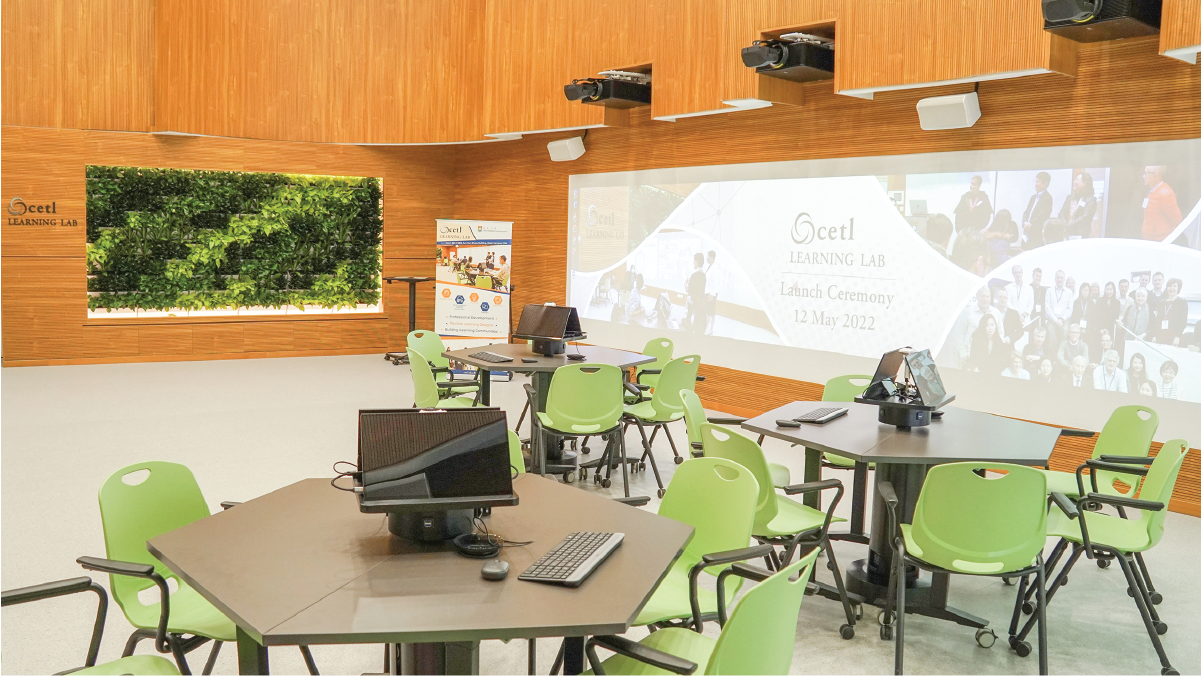
The CETL Learning Lab was launched in May 2022 to support innovation, including addressing the post-pandemic demand for synchronous hybrid learning.
HKU teachers have been honoured internationally for their excellence and innovation, winning two Gold awards and one Bronze at the 2021 QS Reimagine Education Awards (the ‘Oscars’ of education) and the C Holmes MacDonald Outstanding Teaching Award from the Institute of Electrical and Electronics Engineers Eta Kappa Nu (IEEE-HKN).
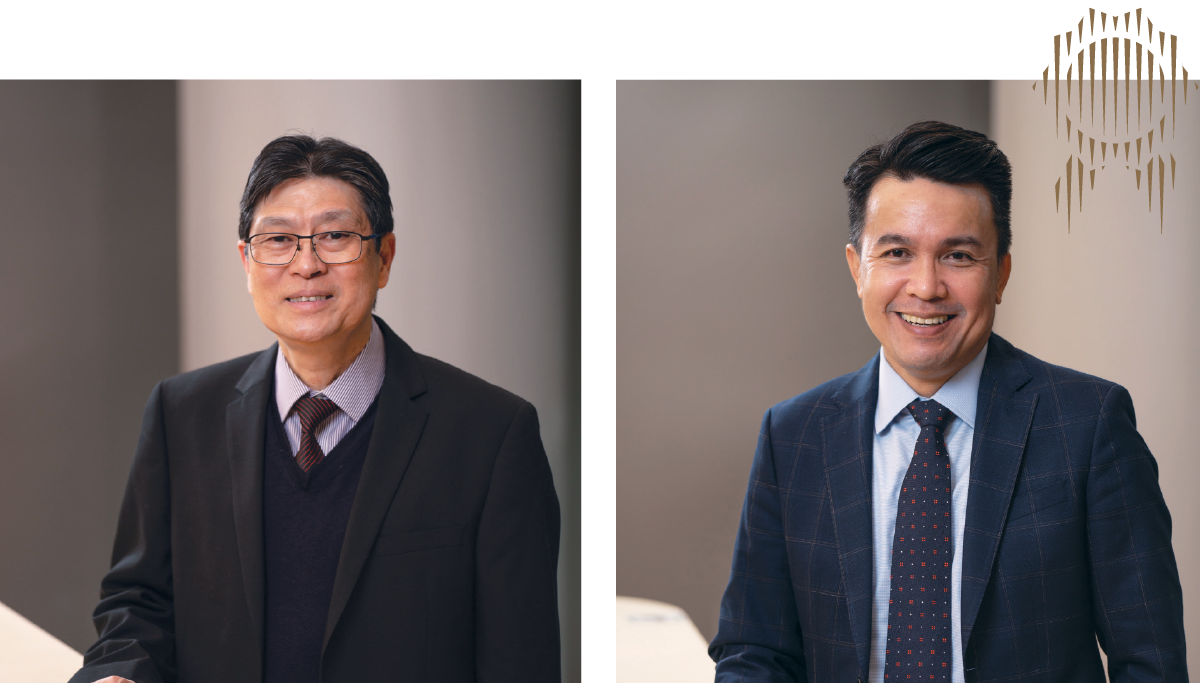
QS Reimagine Education Gold award
Dr George Lim Tipoe and Dr Fraide A Ganotice Jr of the Li Ka Shing Faculty of Medicine won a Gold award in hybrid learning for their teamwork on interprofessional education and collaborative practice. Students from 12 health-related programmes in six faculties come together to learn about, from and with one another, and deepen their understanding of each other’s disciplines, with their discussions facilitated by Open edX and learning analytics. More than 40 teachers are involved in the project.
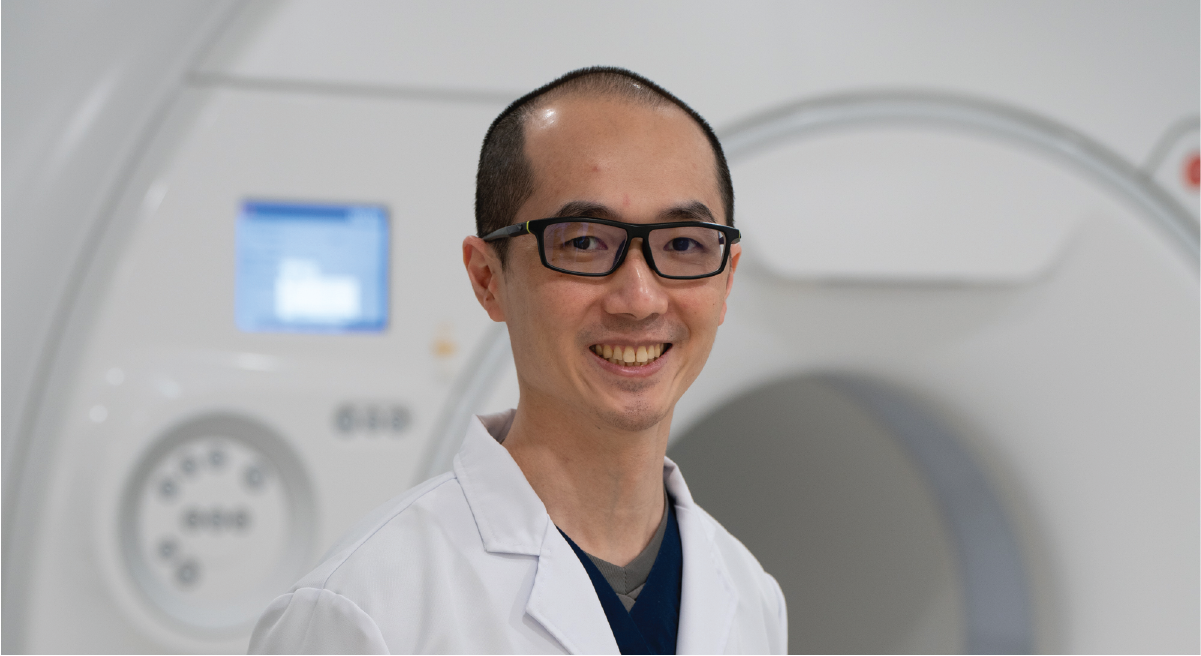
QS Reimagine Education Gold award
Dr Ng Ming Yen of the Department of Diagnostic Radiology won the Gold award for life sciences for a Massive Open Online Course (MOOC) on cardiac imaging that is the first of its kind to provide a postgraduate certificate in cardiac CT and MRI. The MOOC was developed with input from a large team of international and Hong Kong experts and HKU’s Technology-Enriched Learning Initiative.

QS Reimagine Education Bronze award
The Bronze award went to Mr Mathew Pryor and Ms Lynn Lin Hanyuning in the Faculty of Architecture in the category of ICT tools in teaching, learning and support for their Digital Exhibition Space, which makes creative use of 3D virtual technologies for students to learn and display their works.
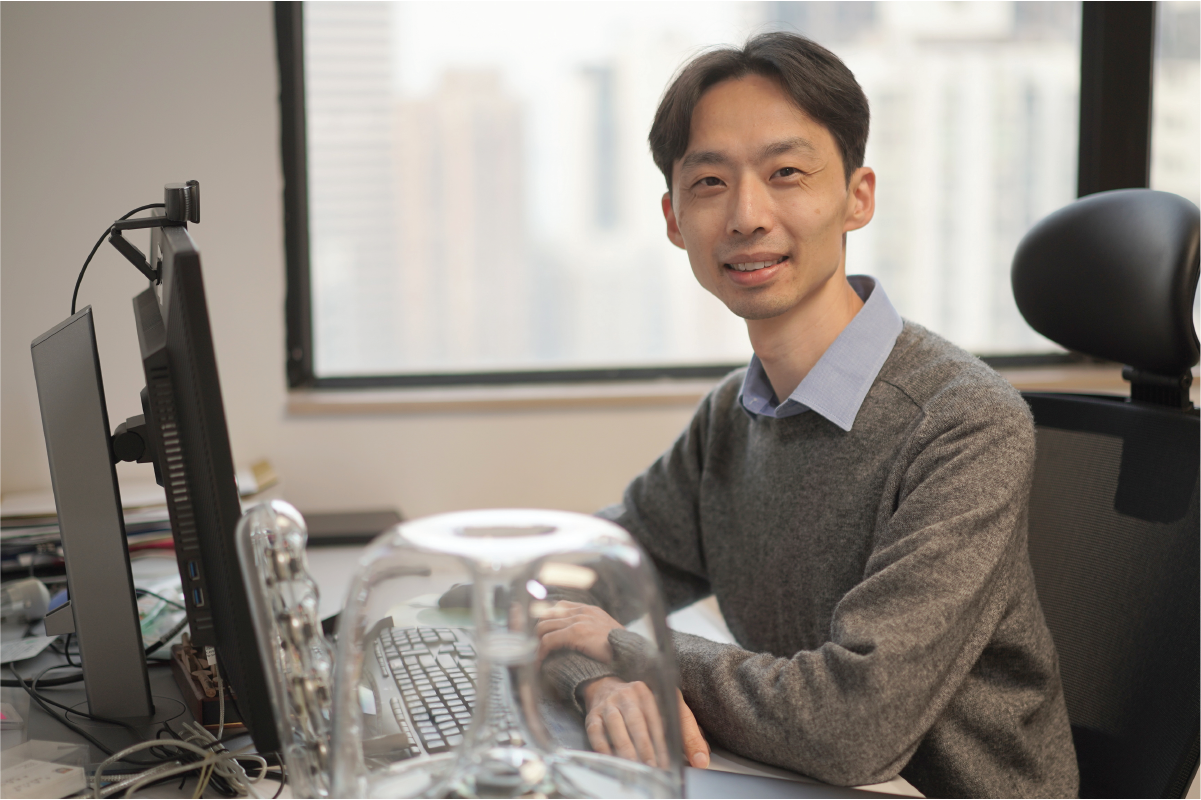
IEEE-HKN award
The IEEE-HKN award went to Dr Hayden So Kwok Hay in the Faculty of Engineering for his excellence in training and motivating future engineers. Dr So involves students in hands-on projects from the outset then guides them back to the underlying theories. His teaching has inspired several students to launch their own start-ups. The IEEE’s honour society, Eta Kappa Nu, honours only one professor globally each year. Dr So is the first scholar outside the US to receive the award.
In 2016, the Li Ka Shing Faculty of Medicine announced its unique ‘Enrichment Year’ (EY) curriculum, which requires all third-year MBBS students to spend the year broadening their horizons, pursuing their interests and even completing a second degree in Hong Kong or abroad, before the demands of clinical studies kick in. The first students to benefit graduated in 2022 and report that the year off-book was deeply fulfilling.
Some 61 of the 230 students in the class completed a second degree, while others took courses in areas completely unrelated to medicine, did internships, and / or worked with local, national or international charities. In all cases, the Faculty helped students make meaningful selections and guided them throughout their third year.
Gladys Sit, for instance, spent a semester at the University of Edinburgh taking courses in public health, biology and economics, then went to Yunnan province to collaborate with a team from Fudan University to research smoking among healthcare professionals and patients. The experience helped improve her communication skills. “As a doctor, we might think we’re explaining something clearly, but in fact we frequently use technical terms,” she said. “We can’t blame patients for not understanding or asking lots of questions. I learned to be more patient and more considerate of the patient.”
Allison Tai completed a Bachelor of Science in Clinical Sciences at the University of Bristol where she learned how to apply research techniques in clinical medicine. “This experience taught me that research is not just about numbers, but that it can tell you about a patient’s life experiences. It definitely serves as a good reminder for me as a doctor.”
The EY curriculum was developed by the current Dean of Medicine, Professor Lau Chak Sing, Daniel C K Yu Professor in Rheumatology and Clinical Immunology, when he was Assistant Dean. “It has been very satisfying to watch students grow professionally and personally with the help of our unique EY curriculum,” he said.
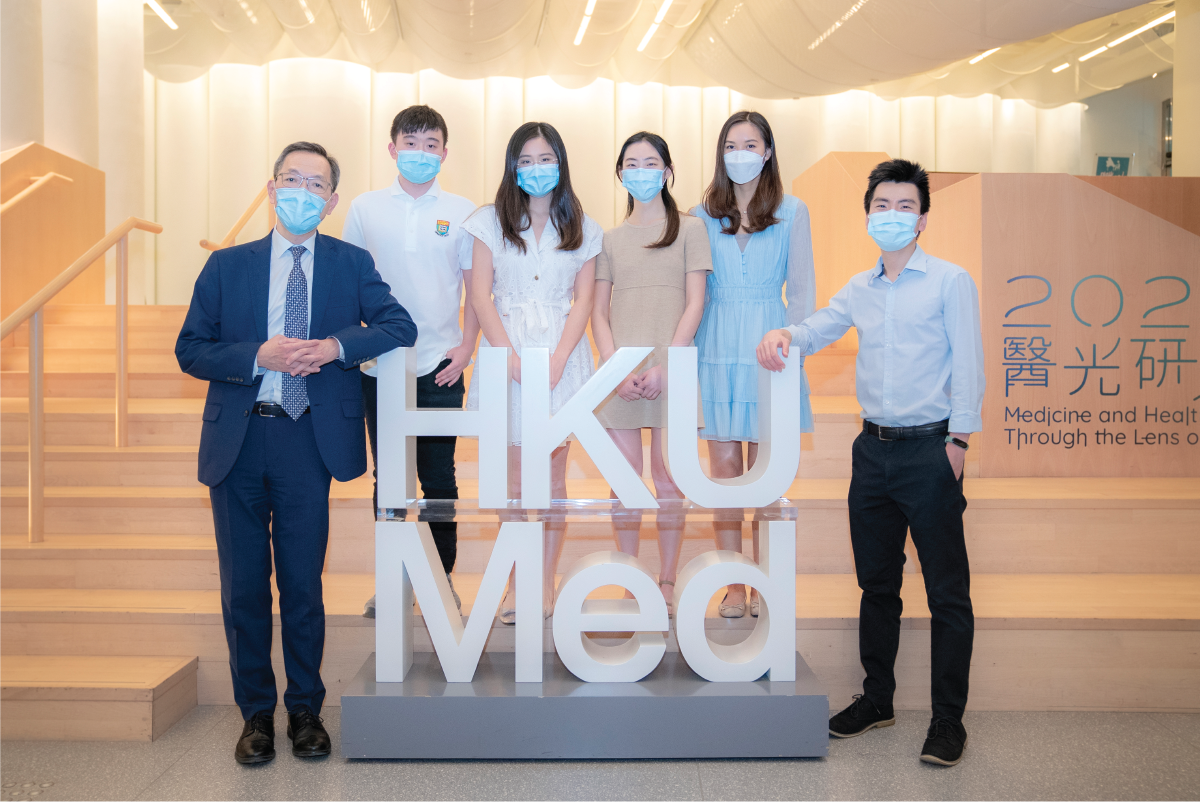
Professor Lau Chak Sing (first from left) was joined by members of the first class to complete the Enrichment Year.
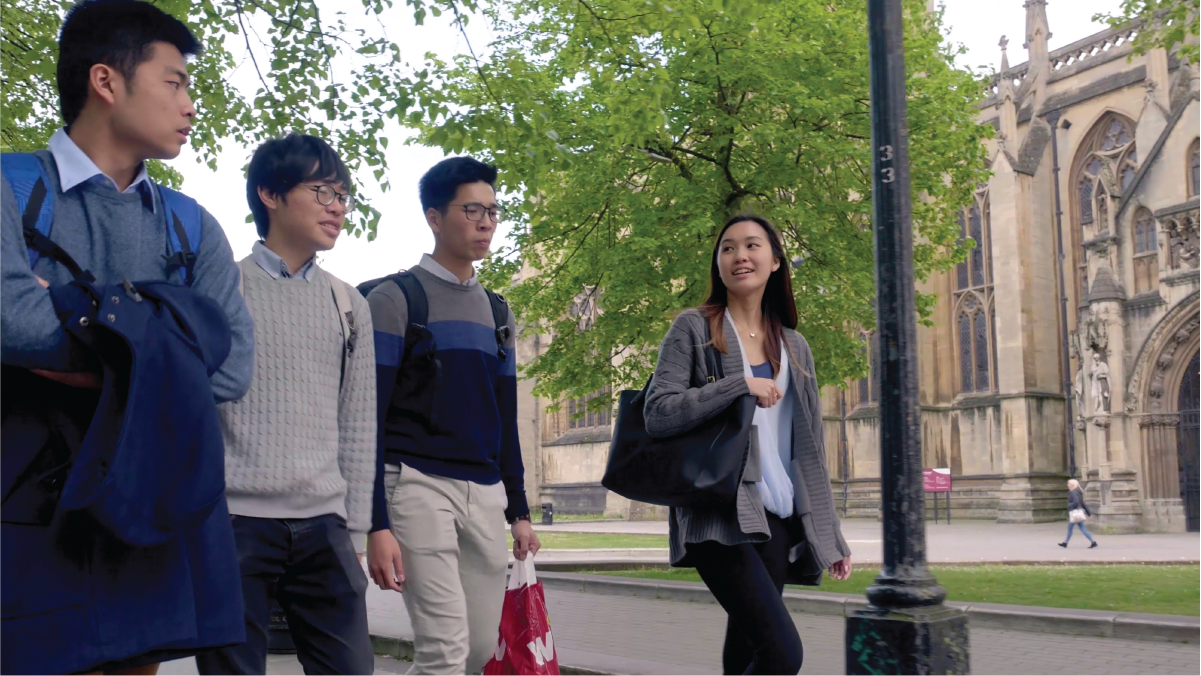
Allison Tai spent her Enrichment Year at the University of Bristol.
Pandemic restrictions may have hindered exchanges outside Hong Kong for HKU students, but they have not prevented them from engaging with the world in other meaningful ways. The Common Core has made the most of virtual technologies so HKU students from different disciplines can collaborate with their counterparts around the world on projects of global concern.
In the summer, for example, HKU students from such disciplines as business, engineering and biomedical sciences worked together with Davis College students in Rwanda to develop projects for the Nyamirambo Women’s Center, an NGO that provides education and support to women affected by gender-based violence, gender inequality and discrimination. The women are trained and employed to create accessories, clothing and home décor products. The students’ task was to develop ideas that would add value to the NGO’s work. They made formal proposals and presentations on ideas such as creating Instagram posts and a LinkedIn marketing channel and recruiting student interns to help with work overloads.
Some 182 students participated in the Common Core’s virtual co-curricular programmes in 2022. The resumption of in-person teaching in autumn 2022 will enable the Common Core to expand opportunities for students to engage both physically and digitally with impactful projects.
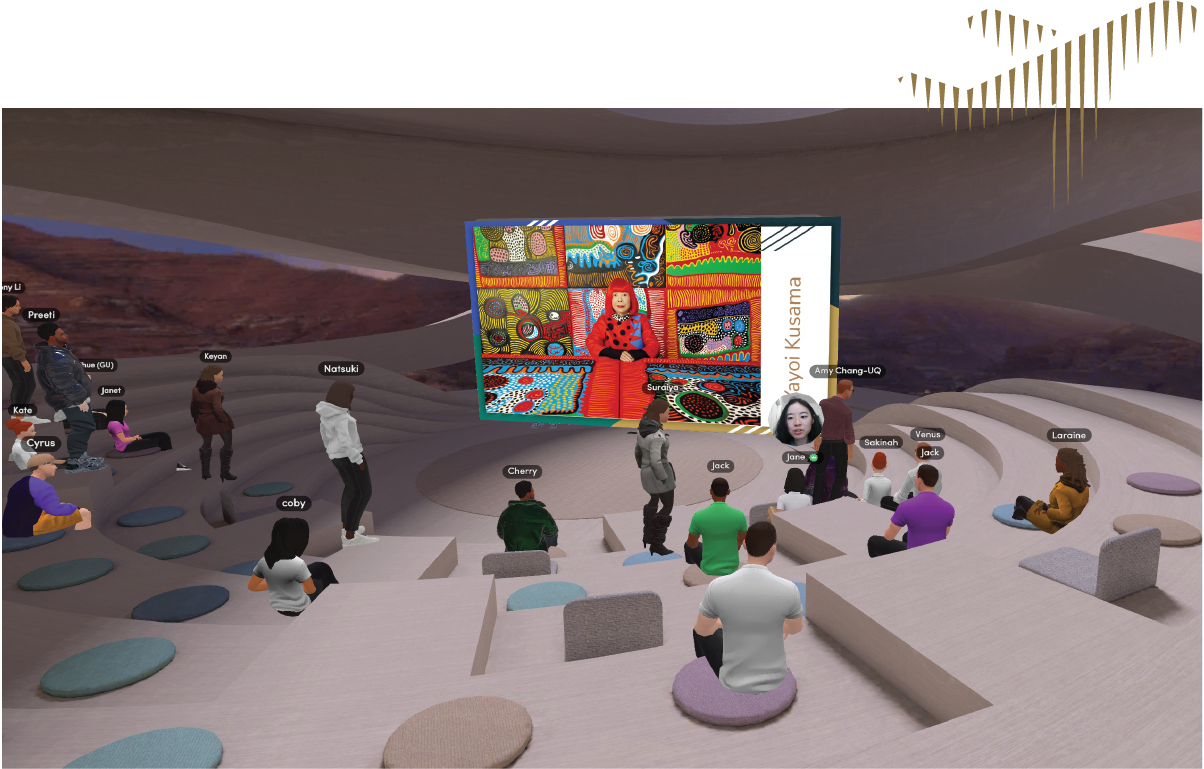
A virtual classroom session on art and well-being in a Common Core research project in collaboration with the University of Queensland and Griffith University, Australia.
